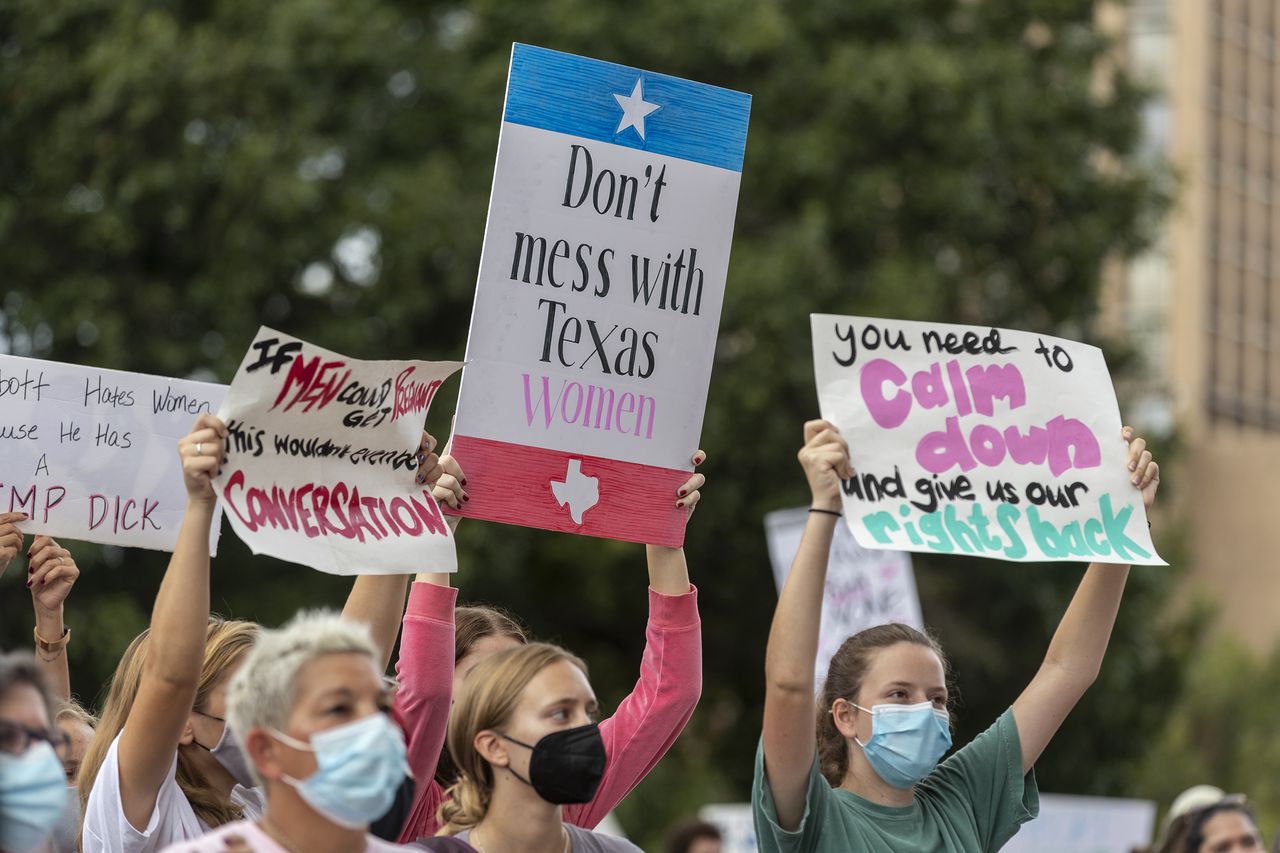Texasâ 2021 abortion restrictions disproportionately harm immigrant women, experts find
In the two years since Texas Gov. Greg Abbott signed Senate Bill 8 banning abortion across the state after about six weeks, vulnerable pregnant people have struggled to access reproductive healthcare even in dire situations.
Five women sued the state after being refused abortions even when, in some cases, their lives were in danger. Under the law, an abortion may be performed to save the life of a pregnant person. Others have told stories of being denied care after miscarrying.
In at least one instance, a woman had to carry a pregnancy to term despite a fatal anomaly.
Signed in 2021, S.B. 8 became the benchmark for the anti-abortion movement across the country. Governors in other states passed restrictions modeled after it. The law prohibits physicians from performing the procedure if a fetal heartbeat is detected, which can happen as early as six weeks.
It does not allow an abortion to be performed in cases of rape or incest.
If violated, providers and those who assist pregnant people in obtaining an abortion can be sued for at least $10,000.
In June, Abbott quietly signed another law allowing for more exceptions if the pregnant person is experiencing an ectopic pregnancy or when water breaks too early for the fetus to survive. The move was widely criticized by advocates.
Regardless of the limited exceptions now in effect, the end result has been pregnant people traveling across state lines or relying on abortion pills obtained through telehealth medicine to terminate a pregnancy.
The costs to travel can be overwhelming. There are expenses relating to transportation, accommodation and childcare, among others. For people who cannot afford to miss work, the financial toll can be excruciating.
Undocumented immigrant women, of which there are about 800,000 in Texas, have been disproportionately harmed by the ban, explained Lupe M. Rodríguez, executive director of the National Latina Institute for Reproductive Justice.
“If you don’t have documentation, you can’t very easily get on an airplane,” she said, illustrating just one of the many difficulties.
Accessing reproductive healthcare was difficult for immigrant women long before Abbott signed S.B. 8.
Across the country, at least 2.1 million undocumented immigrant women live in states with an abortion ban. Depending on where they live, some might choose to avoid accessing health care altogether out of fear of being detained or deported, Rodríguez said.
Even if a pregnant person decides to seek prenatal or gynecological care during a pregnancy, access to state or federal programs can be difficult to obtain. It’s not uncommon for legal residents to wait up to five years to enroll in public health insurance programs.
Though it’s not possible to make a direct link between immigration policies and health outcomes, maternal mortality rates among Hispanic women significantly began increasing in 2020.
In 2021 — the year S.B. 8 became law — 27.5 per 100,000 pregnant Hispanic women died from complications relating to pregnancy and childbirth, according to the U.S. Government Accountability Office.
The issue is further compounded for pregnant people in detention centers, Rodríguez said. As a general rule, President Joe Biden’s administration has decided against holding pregnant people in detention facilities. Still, some might be kept in custody due to strict mandatory detention laws.
For unaccompanied minors needing abortion care, authorities might opt to transfer them out of state if they’re being held in a state where services are not available. However, Rodríguez said her organization is not aware of an instance where that has happened.
These policies have led to people in Latinx communities “just having unwanted pregnancies,” Rodríguez said.
She’s concerned about the negative health consequences the legislation will have on immigrant communities. Because data surrounding the issue is so scarce, it’s difficult to determine how populations she works with are coping.
She believes there are some “people who can’t self manage in a safe way and might be doing things that could be harmful to them, and of course, the fetus,” she said.
